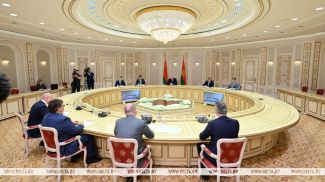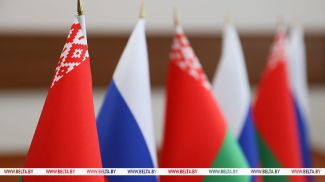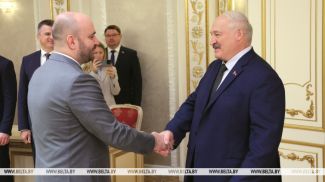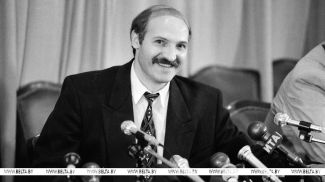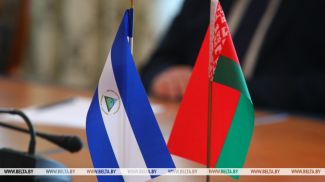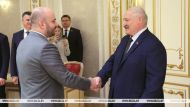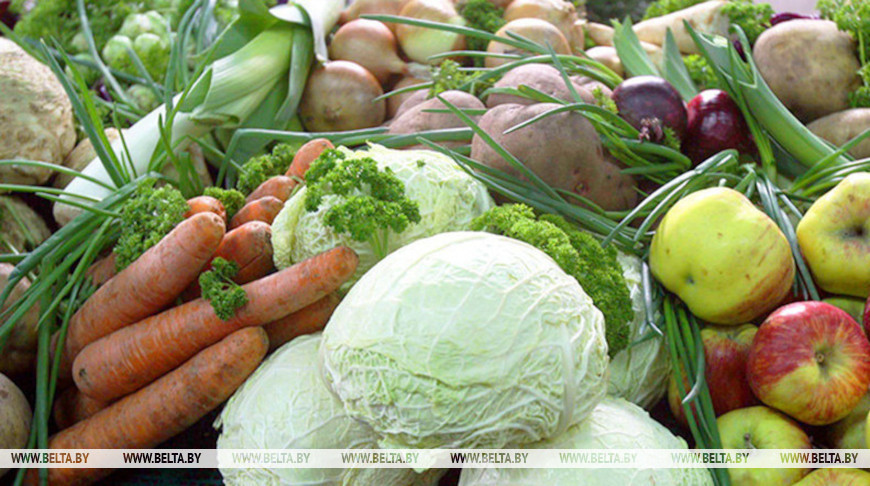
MINSK, 10 April (BelTA) – Belarusian President Aleksandr Lukashenko explained the reasons why Belarusian food products enjoy good demand abroad as he gave an interview to the Interstate TV and Radio Company Mir on 8 April, BelTA has learned.
The head of state was asked what Belarus could offer its EAEU partners and other countries to improve food security.
The president noted that Belarus has made great advances on this front. It is fully self-sufficient in food and is a food exporter. In 2004 the country exported $8.5 billion worth of foodstuffs. Moreover, this figure does not include the foodstuffs exported by tourists, guests of the country and citizens traveling abroad.
In this respect, Belarus was a popular destination for residents of the Baltic states, including Lithuania. However, the authorities of this country imposed a ban on food imports from Belarus. “They got scared and banned goods from Belarus,” Aleksandr Lukashenko said. He is sure that it's impossible to completely block supplies in the modern world: “You cannot ban everything. Other ways and means are always found. These supplies may be a little more expensive or maybe not. People will find these ways themselves.”
The head of state emphasized that Belarus has the experience and technologies to strengthen food security and is willing to share them with other countries.
The president gave examples of such interaction, particularly with Venezuela and Zimbabwe.
“In Venezuela, we started this cooperation with Hugo Chavez. I was on good friendly terms with him. He asked for help in agriculture. I said, 'We will build you a collective farm and some other farms. You will show us what kind of soil you have and other specifics. Our specialists will come out and make suggestions,” the Belarusian leader said. He added that Belarus had helped Venezuela in other sectors as well, including the production of construction materials, agricultural machinery, and many others.
Another example is the cooperation of Belarus with Zimbabwe, thanks to which this country began to crop record grain harvests. This helped the country strengthen its food security significantly, or, simply put, feed its people.
“Our specialists came to share our best practices, brought our equipment, and taught people to use it. They started plowing and sowing. They have at least two harvests a year. They finally got the harvests they needed in order to have their own bread,” Aleksandr Lukashenko said. Today Belarus and Zimbabwe are working to expand cooperation in healthcare, launch baby food supplies, implement a set of measures to solve the infant mortality issue, which is urgent for that country.
“We have experience in building food security. By food security we mean grain, meat, bread and other staples. They need to be produced. This requires tractors, tillage equipment. Belarus has high-quality farming machinery. We can offer it to anyone,” the head of state noted. “In this respect (from machinery to finished products) we are ready to make our contribution to food security.”
According to the president, Belarusian food products are in high demand in the regions with well-developed agriculture. For example, these are Bashkortostan, Tatarstan. “Even the well-developed republics in Russia buy Belarusian food products. They have tasted foreign products and compared the value for money,” Aleksandr Lukashenko said.
“Heads [of Russian regions] come to me and ask for certain products, saying that Belarusian products are of high quality with a good value for money. They say that people got used to Belarusian foodstuffs. We can offer our products and we do it. People buy Belarusian. You do not have to go anywhere. Our products are much cheaper than imported ones,” the president said when touting the advantages of Belarusian food products.




